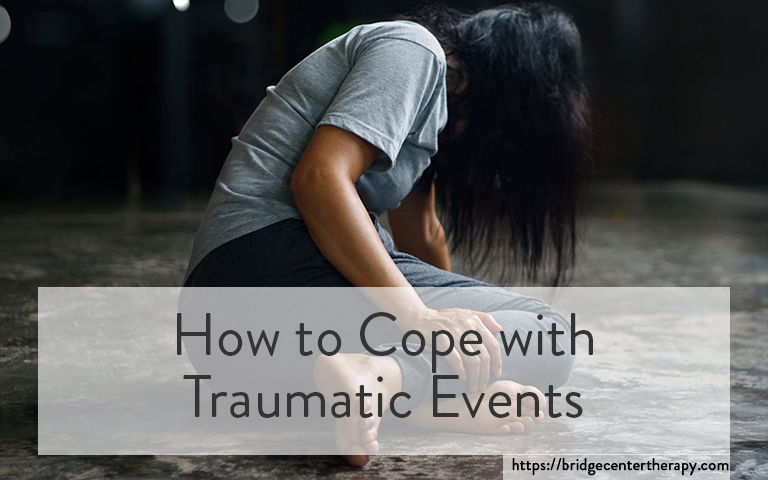
It is normal to experience traumatic stress following a disturbing event. Post-Traumatic Stress Disorder (PTSD) and other forms of traumatic stress can be incredibly difficult and unpredictable. In the days and weeks following a traumatic event, it’s common to experience distressing thoughts, feelings and physical symptoms. According to the American Psychological Association they may include:
You can get there from here.
– Sadness
– Feeling nervous, jumpy or on high alert
– Irritability or anger
– Difficulty sleeping
– Relationship problems
– Intrusive thoughts, flashbacks or nightmares
– Trouble feeling positive emotions
– Avoiding people, places, memories or thoughts associated with the traumatic event
Luckily, there are various ways you can help yourself through this. Here are some diverse coping strategies to add to your toolbox.
1- Avoid Obsessively Reliving the Event
Repetitious thinking can overwhelm your nervous system. Choose activities that keep your mind occupied so your not dedicating all your energy to the traumatic event.

2- Put Major Life Decisions On Hold
Big decisions will only increase the stress in your life. Wait until you have settled down, are emotionally more balanced and able to think more clearly before you make decisions that will impact your future.
3- Don’t Isolate Yourself
If others have had the same experiences, talk to them. They may be having the same feelings. Reach out to your friends and family to create your support system.
4- Celebrate Life
Feel positive about successes and happy occasions. It’s okay to feel joy and revel in the warmth of your family and friends. It’s all part of the road to recovery.
5- Stay Healthy
Eat, hydrate, exercise and get rest on a regular basis. Stress has a physical impact. Take care of your body to reduce the negative effects it can have on your health.
6- Breath Slowly and Deeply
Inhale through your nose and exhale for longer than you inhale. This activates the part of your nervous system that helps your body calm itself and return to the present moment.

7- Think Positively
Bring something beautiful to mind. Think of a flower, sunset, the smile on a loved one’s face or a compliment. You only need to do this for 12 seconds to replace fear-based thinking.
8- Be Patient
It’s normal to have a strong reaction. Take things one day at a time and remain in the present moment. As the days pass, your symptoms should improve.
Need Help? We Can Help.
Usually your feelings of anxiety, numbness, confusion, guilt and despair will soon fade. However, if your reaction is so intense that you are having trouble functioning at home or work, you may need help from a mental health professional.
Do you suffer from PTSD? We can help. Call (510) 497-4174 today.
If you have any questions or require more information, please contact Lani here: lani@bridgecentertherapy.com
